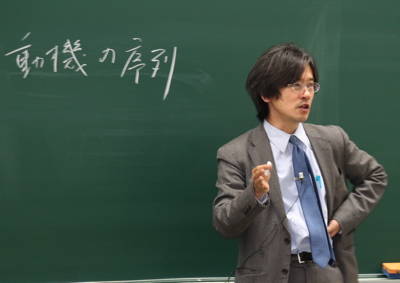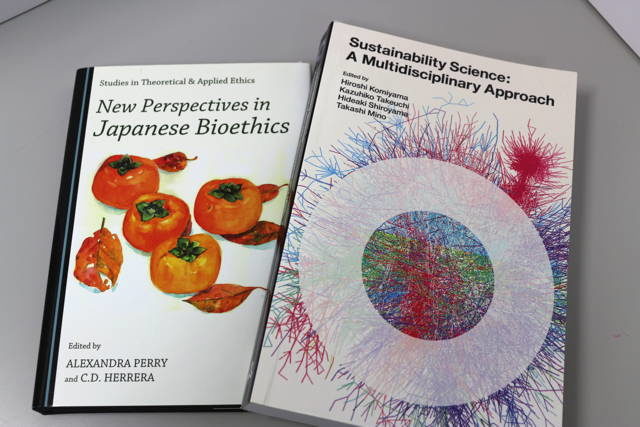Profile

- Research Subject
bioethics(genethics, cloning),environmental ethics(obligation for future generation),ethics of science and technology (risk, social problems of GMO),Kantian philosophy and ethics, normative ethics, metaethics, STS
- Research Fields
- Applied ethics, ethics, history of occidental philosophy
- Faculty - Division / Research Group / Laboratory
- Division of Humanities / Research Group of Philosophy and Religious Studies / Laboratory of Philosophy and Ethics
- Graduate School - Division / Department / Laboratory
- Division of Humanities / Department of Philosophy and Religious Studies / Laboratory of Philosophy and Ethics
- School - Course / Laboratory
- Division of Humanities and Human Sciences / Course of Philosophy and Cultural Studies / Laboratory of Philosophy and Ethics
- Contact
Email: kurata(at)let.hokudai.ac.jp
Replace “(at)” with “@” when sending email.Foreign exchange students who want to be research students (including Japanese residents) should apply for the designated period in accordance with the “Research Student Application Guidelines”. Even if you send an email directly to the staff, there is no reply.- Related Links
Lab.letters


Technology and Ethics
My research areas are applied ethics, normative ethics and metaethics. As an applied ethicist, I study bioethics, environmental ethics, and the ethics of science and technology. I address ethical problems that arise from new biotechnologies, nuclear technologies and other scientific advances.
My research topics are physician-assisted suicide, the ethics of human genomic research, obligations to future generations, equality and justice in environmental risk, and the philosophy and ethics of risks arising from technology.
Many people believe new technologies are ‘good’ in themselves, but such an attitude might lead to disasters or accidents. I believe we must assess new technologies from an ethical point of view to prevent them from spinning out of control.
Normative Ethics and Metaethics
In the branch of normative ethics, I analyze concepts from Kantian ethics, such as moral good, justice, human rights and human dignity. Philosophers and ethicists have been thinking about similar problems for the two thousand years since ancient Greece, but new problems arise successively in this field, and new theories and tools are being developed.
Although the concept of ‘human dignity’ has its roots in Western culture and traditions, many people believe it has universal validity. I would like to confirm the base of this concept. When we read classic texts by philosophers such as Kant from the viewpoint of contemporary metaethics, we can discover new points in his ethical theories.
Lately, various philosophical frames and tools for considering the meaning of the life have been proposed. In light of philosophical thought on the meaning of life, I would like to reconsider some problems related to bioethics.
Message
What does it mean “to do the right thing” and “live a good life”? Is “ethics” the same as “morality” or “justice”? Or what is the meaning of life? Does “Good” exist in this world? And how can we know what is right? And how can we act rightly? In this society, there are more and more situations where we need ethics. Emerging new medical technologies, new technologies, and the global environment’s deterioration raise new ethical issues. In this complex society, it is becoming more challenging to know the right thing to do. Studying ethics means rethinking concepts such as “duty,” “happiness,” and “virtue,” as well as “freedom,” “life,” “death,” “rights,” “ownership,” “equality,” “nature,” “gender,” and “existence.” And contemporary ethical theories and knowledge of the history of ethics might be useful for answering these questions. Besides, by thinking about specific issues in applied ethics, such as bioethics, environmental ethics, business ethics, and science and technology ethics, you will acquire new perspectives to think about these concepts. You will be able to connect abstract ethical theories with real issues. By reading, writing, thinking, and discussing with your friends, you will gain a new view of yourself and the world.




